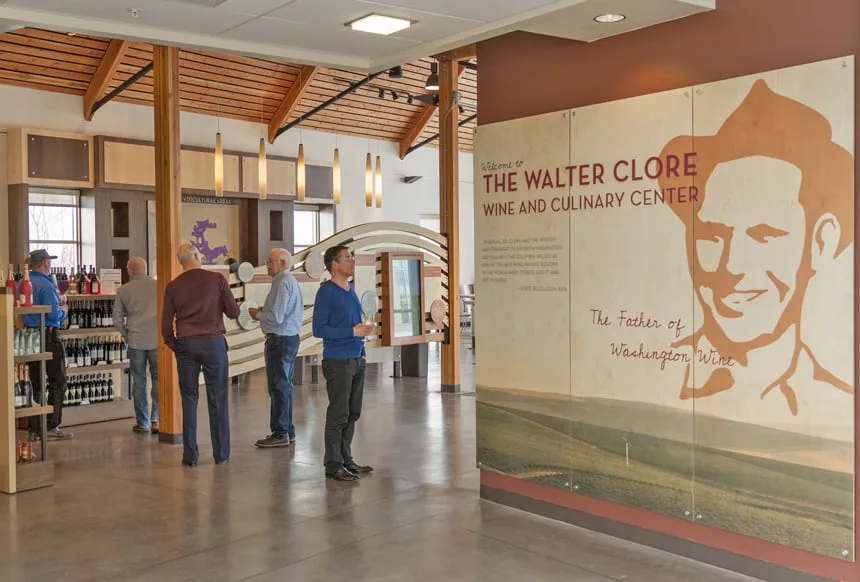
Home » WSU Tri-Cities inks $25K lease for Walter Clore Center
WSU Tri-Cities inks $25K lease for Walter Clore Center

October 14, 2021
WSU Tri-Cities is setting up camp in Prosser.
The school has agreed to lease the closed Walter Clore Wine & Culinary Center from the Port of Benton for $25,000 a year. It will use it for wine and culinary education.
The port originally built the 15,000-square-foot facility in 2014 to showcase the state’s wine industry. It was named for the late father of the Washington wine industry and operated by the private nonprofit.
The Clore Center board notified the port it would shut down in October 2020 and formally closed in December 2020. The port ruled out selling the property and cast about for a new tenant.
“WSU’s alignment with regional wine and culinary education is indisputable and we’re delighted to take this next step with them in ensuring Dr. Clore’s memory is honored,” Diahann Howard, executive director for the port, said in a statement.
Miles Thomas, the port’s economic development director, said the building is in good condition, and the port will retain responsibility for maintenance.
It has a tasting room, event space and educational center as well as some kitchen facilities. It is at 2140A Wine Country Road, near the Interstate 82 interchange.
WSU and the port signed the one-year deal in July and announced it Sept. 16. The agreement can be renewed for one-year terms and terminated with 30 days’ notice by either party.
As part of the agreement with the port, WSU Tri-Cities will offer two to four community educational programs each month to help the port comply with terms of a $2 million federal Economic Development Administration grant that helped build it in the first place.
The EDA grant is closed but has a standing provision that the facility be used for its original purpose – as a wine and culinary center.
The nonprofit Clore Center borrowed $150,000 from the Hanford Area Economic Investment Fund. It defaulted on the loan, which has been written off.
The port was not a party to the HAEIF loan taken out by the prior tenant, Thomas said.
In late 2020, the chairman of the Clore Center board said it was difficult to use the property as an educational showcase when so many wineries had opened their own tasting rooms. It retooled its operations, but the Covid-19 pandemic and long-term shutdowns disrupted the plans and forced it out of business.
As the new tenant, WSU will promote the work of the Prosser Irrigated Agriculture Research and Extension Center, as well as its own wine programs in Richland. It also agreed to help archive, catalog and display Clore’s personal notes, items and materials, which must remain on site.
“We are elated to offer programming that will not only educate individuals about the history of Washington state wine, but also provide sensory and other hands-on experiences that will allow individuals to do a deep dive into all that Washington wine has to offer,” said WSU Tri-Cities Chancellor Sandra Haynes in a news release.
Byron Marlow, associate professor of hospitality and wine and beverage business management and WSU’s Don Smith, distinguished professor, will oversee educational programming at the center.
Local News
KEYWORDS october 2021





